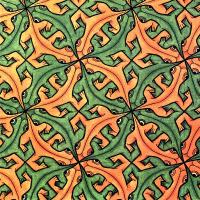訊息: 7
語言: English
Miland (顯示個人資料) 2014年8月13日下午3:35:38
A non-Latinist's attempt: rikoltu la tagon.
sergejm (顯示個人資料) 2014年8月13日下午3:59:53
Kaptu la tagon - Catch the day
By the sence:
Kaptu la momenton - Catch the moment
Ĝuu la tagon - Enjoy the day
sparksbet (顯示個人資料) 2014年8月14日下午4:54:59
Amistà (顯示個人資料) 2014年8月14日下午5:34:46
sparksbet:I'd go with "Ekkaptu la momenton," or perhaps "Ekkaptu la nunon" if I were feeling particularly whimsical about word formation. I think the 'ek-' adds the sudden, urgent nature of "carpe" (translated as "seize" in English) better than just "kapti" or "rikolti." I think the metaphor in the original phase translates fine to Esperanto, so I don't think it needs to be changed much, although I think using a shorter (and more indefinite) time measurement adds more force to the metaphor, which is why I would choose "momenton" or the somewhat unconventional "nunon."Kiel amanto de Horacio, mi konsideras "Ekkaptu la momenton" ja bona.
nornen (顯示個人資料) 2014年8月14日下午5:51:39
Miland:Translate the Latin quote "carpe diem".
A non-Latinist's attempt: rikoltu la tagon.
Horace Odes 1.11: [...] carpe diem, quam minimum credula postero.The stem behind the verb carpo (carpsi, carptum) is fruit as we can see for instance in Greek καρπός (karpós) which indeed means fruit. It is also related to rapio (rapui, raptum) which means seize and carry off, cf. also ἁρπάζω (harpátsō).
Literally carpere means to seize a fruit or more generally to take something as nourishment.
Tropically carpere means to enjoy, use, make use of and Lewis & Short give fruor as a synonym which brings us back to our original meaning of fruit. Obviously, if you seize a fruit you do so in order to enjoy that fruit and to use it (as nourishment).
Hence, in a more literal sense I would translate it as Rikoltu tagon, while in a more tropical sense I would tend to Ĝuu tagon or Bonuzu tagon. I think the latter might be the most accurate from my humble point of view.
I would not use the ek- prefix to indicate an inchoative or inceptive action, because neither is it *Carpesce diem in Latin.
I was never sure whether the postero is referring back to diem and should be read as postero diei (which is a widely accepted interpretation), or if it should rather be read as postero viro/homini, which could refer to Horace himself, the old goat. Maybe it is an intentional pun Horace left for the future reader to muse about.
Bonuzu tagon, kiel eble plej minimume fidema pri la sekva. La sekva kio?
Alkanadi (顯示個人資料) 2014年8月17日下午1:45:42
Ne malŝparu la tago. Don't waste the day
I think other people had better ideas though.
jismith1989 (顯示個人資料) 2014年8月17日下午8:50:17



